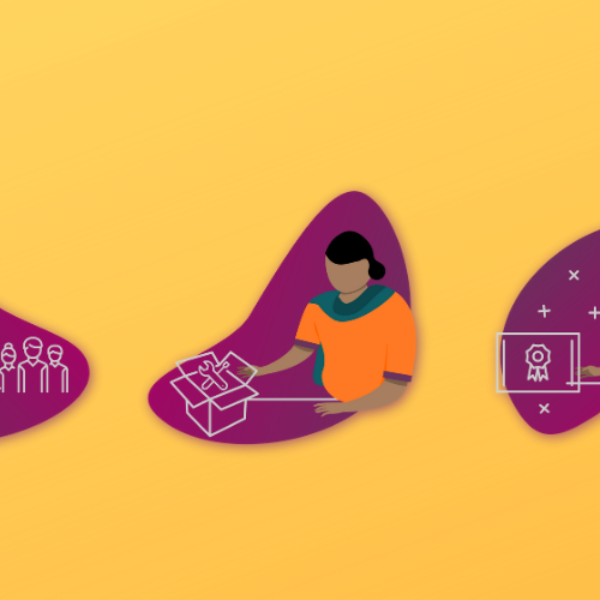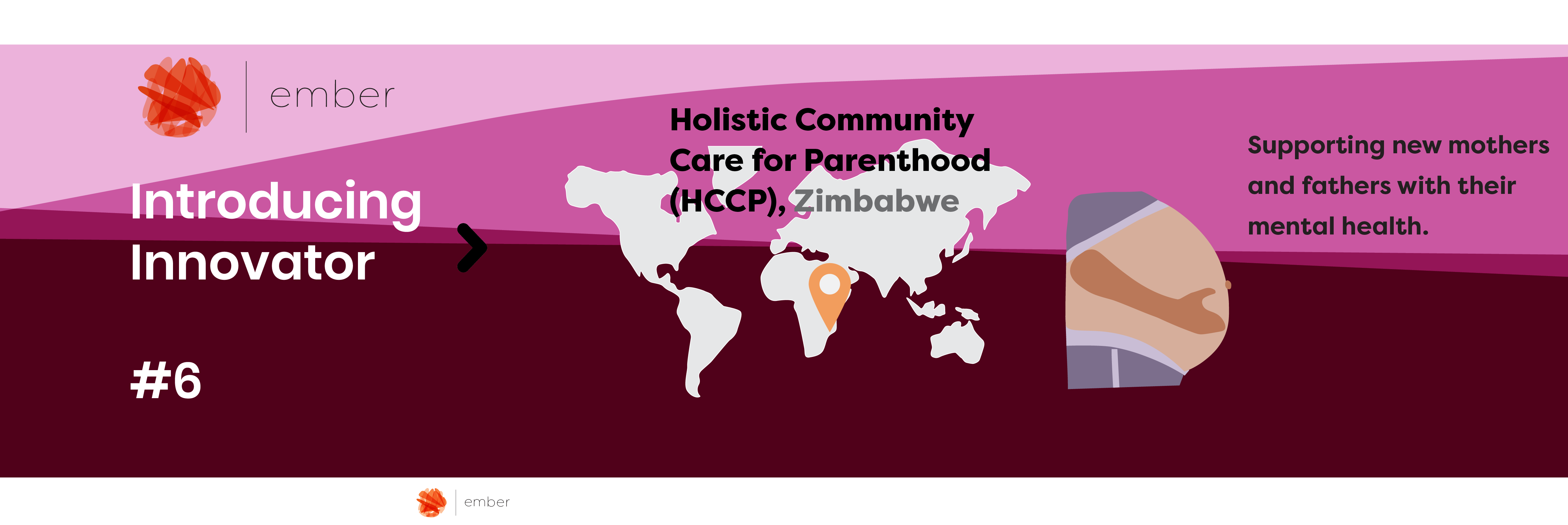
From Ecuador to Ethiopia: Introducing Ember's 2020 partners.
Featuring grassroots innovators from Ecuador to Ethiopia, we're excited to introduce the twelve projects partnering with Ember in 2020.
Published on Jun 01, 2020
From Ecuador to Ethiopia: Introducing Ember's 2020 partners.
Featuring grassroots innovators from Ecuador to Ethiopia, we're excited to introduce the twelve projects partnering with Ember in 2020.
Published on Jun 01, 2020

Ember is an initiative by the SHM Foundation and the Mental Health Innovation Network that finds, connects and funds excellent grassroots mental health projects around the world.
In August 2019, Ember launched its first call for applications - and we were amazed by the response: 160 submissions from mental health organisations working in 48 countries, showcasing a huge range of perspectives and approaches, challenges and strengths, often delivering mental health support in difficult contexts with extremely limited resources. The standard of these applications was very high.
Our initial ambition for 2020 was for Ember to partner with 7 initiatives. We are glad to announce that, with combined support from CBM International, Vitol Foundation and SHM Productions, we were able to extend our ambitions. Following a rigorous selection process that drew upon the skills of the whole team and the expertise of the Ember Working Group, an external panel of specialists from across different fields, Ember has selected 12 projects to partner with in 2020. We're very excited to introduce them to you, and even more excited to begin our work together. In no particular order, here are Ember's partners for 2020.
Huertomanias, Ecuador
People living with severe mental illness (SMI) often struggle to find employment for a variety of reasons, including the fact that people frequently misunderstand the nature of their condition. Huertomanias is a community garden cooperative run by a group of people living with SMI that provides a source of livelihoods for the people involved. The interactions that the team have with other community members over the course of selling their produce also provide opportunities to address and overcome the ignorance and prejudice other people often show towards their conditions.
Open Hands, Botswana

In June 2019, Botswana's High Court legalised homosexuality in a landmark ruling. However, LGBTQ+ people still face high levels of discrimination and injustice. Within this context, Open Hands supports and advocates for the mental health needs of LGBTQ+ communities, running self-care groups, making referrals to specialist services and raising awareness of mental health issues. Their parent organisation, Friends of Diversity, works more broadly to support Botswana's LGBTQ+ communities through outreach and practical support.
Child, Adolescent and Family Services (CAFS), Sri Lanka

There are multiple barriers - logistical, financial, cultural - that can prevent families, children and young people from accessing the mental health care they need. CAFS was established to find ways of overcoming or working around these barriers. CAFS run accessible, child-friendly community hubs where they host a range of professionals from different disciplines, offering a range of psychosocial services. The hubs also offer opportunities for trainee psychologists and students to gain experience. The team consciously seek to create spaces that work for all those who access them, across class and ethnic groups.
Mental Health and Wellbeing in Higher Education, Kenya

Substance abuse, mental distress and suicide or suicidal ideation rates are high among young people in Kenya. However, they are not accessing the services they need because of the stigma surrounding these issues. This project was established in response to the increasing number of students attempting suicide at Kenyatta and Chuka Universities in Nairobi. It aims to establish effective mental health services and raise awareness of mental health issues among students and staff. The project is part of Basic Needs Kenya.
The Research and Training Centre for Community Development (RTCCD), Vietnam

RTCCD runs a large-scale community support programme for people living with severe mental illness in collaboration with Vietnam's Women's Union. One strand of the Centre's work in health more broadly, this programme aims to support and equip the families and carers of people with SMI, raise awareness in schools and create livelihoods projects that can offer a source of income for people living with SMI.
Holistic Community Care for Parenthood (HCCP), Zimbabwe

An oft-neglected factor that contributes to Zimbabwe's high rates of infant and maternal morbidity is maternal and paternal mental health, yet there is little mental health care available for new parents, particularly for fathers. Run by qualified family therapists and drawing on the skills and infrastructure of their parent organisation, the Society for Pre and Post Natal Services, HCCP provides mental health support to new mothers and fathers.
Mental Service Users Association (MSUA), Ethiopia

People with lived experience of mental health conditions tend to be under-represented in the spaces where decisions are made about how services will be delivered and what laws will be passed. The Ethiopian government has recently begun making strides to address the severe lack of mental health services and legisalation in the country. The MSUA is an advocacy organisation of mental health service users (the clue is in the name) that is working with government and medical professionals to ensure they have a meaningful say in the design and implementation of the country's mental health policy.
Green String Network

In areas that have experienced communal violence, trauma is often passed down and conflict can become entrenched. Describing themselves as peace builders, Green String Network aim to break cycles of violence in post-conflict settings. Using a trauma-informed approach and creative, participatory methodologies, GSN run workshops that help participants develop strategies for dealing with the long-term psychological impacts of conflict. They train community facilitators to run these workshops for various stakeholder groups, including police, government officials and community leaders. The project has already spread across three countries.
Punto de Encuentro

Financial dependence is one of the major issues that prevents women leaving violent partners. Punto de Encuentro supports victims of gender-based violence to improve their mental health and become financially independent, premised on the idea that the first step to empowering women in this situation is enabling them to find a source of income. Working with vulnerable women, PdE offers therapy sessions and skills-based workshops to support women in developing professional skills, while also providing meals and childcare.
Community-Based Mental Health Project

An estimated 50% of the Afghan population have mental health issues. The approach taken to dealing with these issues is predominantly a biomedical one, with less emphasis on psychosocial approaches. CBMHP is a large-scale community mental health system that does both: it designs and runs psychosocial programmes, conducting community outreach, support, training and awareness raising, and has a strong referral system in place, so that people who need medical attention receive it. It has strong support from the Afghan government. So far, the programme has reached 50,000 people in just two years.
CMC-Nepal

CMC-Nepal is a community mental health project that works in collaboration with government, NGOs and community-based organisations to train and supervise health and lay workers in providing psychosocial support. Their programmes are designed to intersect with other issues that can make people vulnerable to poor mental health, such as migration, gender-based violence and bonded labour. Implemented across more than 20 districts, CMC-Nepal is integrated into municipal structures and leverages strong relationships with local government.
Burans

The state of Uttarakhand has just seven government psychiatrists for a population of over 10 million people. Burans is focused on addressing this massive care gap. The project trains primary healthcare workers, conducts home visits and treatment plans, runs activities for community sensitisation and facilitates peer-to-peer support networks.

Contact Us

Have a challenge you think we could help with? A project you'd like us to collaborate on?
Just want to say hi? Reach out - we love meeting new people